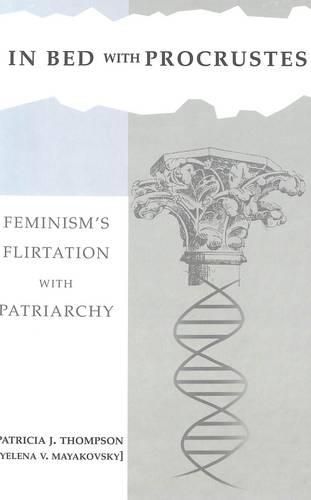Readings Newsletter
Become a Readings Member to make your shopping experience even easier.
Sign in or sign up for free!
You’re not far away from qualifying for FREE standard shipping within Australia
You’ve qualified for FREE standard shipping within Australia
The cart is loading…






In Bed with Procrustes: Feminism’s Flirtation with Patriarchy is the second volume in a Hestia Trilogy. It continues Professor Thompson’s exploration of the Hestian/Hermean Dual Systems Paradigm, introduced in The Accidental Theorist: The Double Helix of Everyday Life. Drawing on two ancient Greek mythemes - Hestia, guardian of the homeplace and Hermes, guardian of the marketplace - she introduces a metaphorical language with which to examine the private/public, civic/domestic, familial/political aspects of the human condition to reclaim the family ecosystem as a site for feminist theory. She challenges one size fits all theories based on patriarchal paradigms (the bed of Procrustes) and suggests how a Hestian feminist perspective can be applied to the academic disciplines of classics, philosophy, history, political science, sociology, psychology, economics, and ethics.
$9.00 standard shipping within Australia
FREE standard shipping within Australia for orders over $100.00
Express & International shipping calculated at checkout
In Bed with Procrustes: Feminism’s Flirtation with Patriarchy is the second volume in a Hestia Trilogy. It continues Professor Thompson’s exploration of the Hestian/Hermean Dual Systems Paradigm, introduced in The Accidental Theorist: The Double Helix of Everyday Life. Drawing on two ancient Greek mythemes - Hestia, guardian of the homeplace and Hermes, guardian of the marketplace - she introduces a metaphorical language with which to examine the private/public, civic/domestic, familial/political aspects of the human condition to reclaim the family ecosystem as a site for feminist theory. She challenges one size fits all theories based on patriarchal paradigms (the bed of Procrustes) and suggests how a Hestian feminist perspective can be applied to the academic disciplines of classics, philosophy, history, political science, sociology, psychology, economics, and ethics.